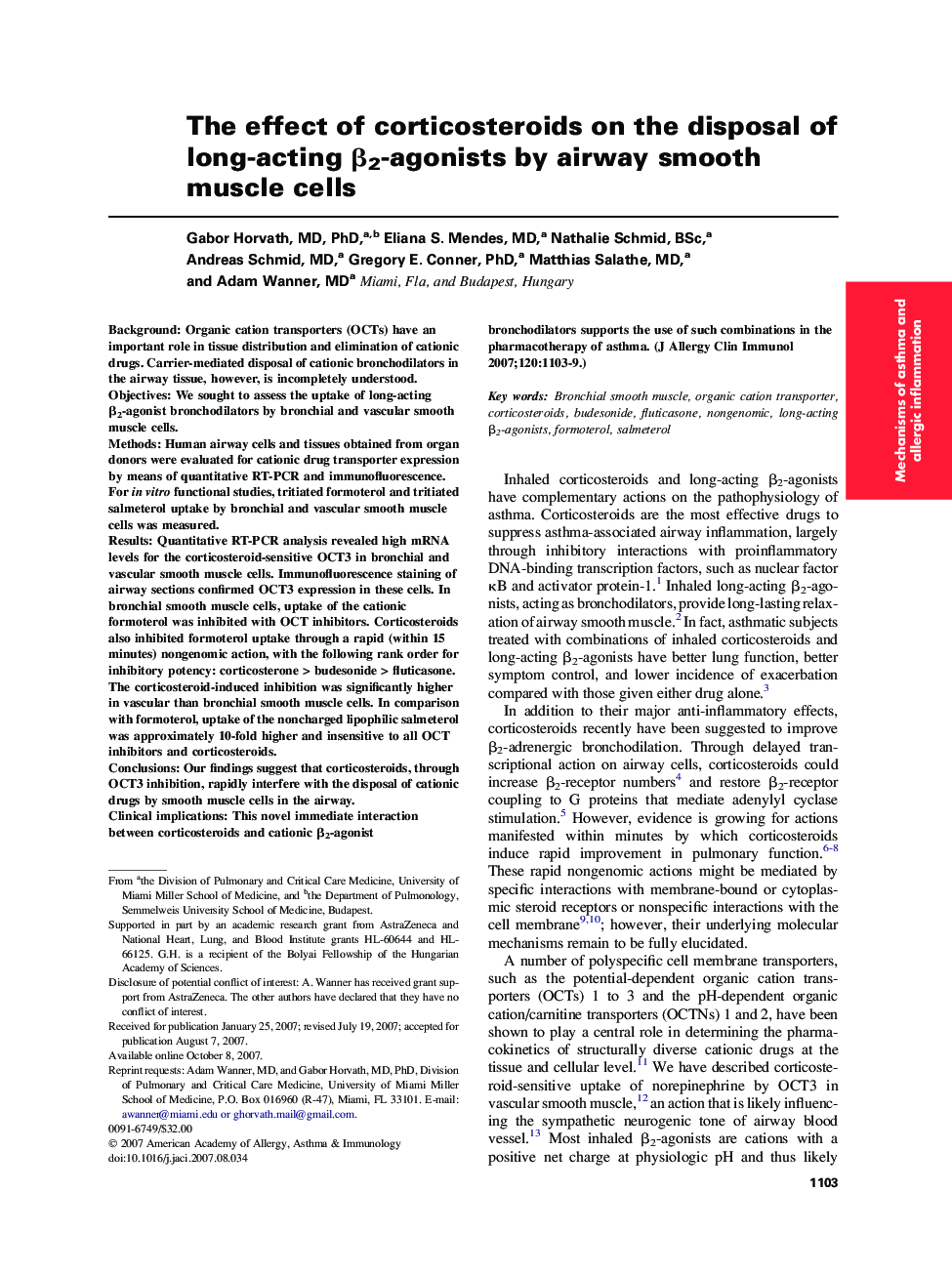| Article ID | Journal | Published Year | Pages | File Type |
|---|---|---|---|---|
| 3201660 | Journal of Allergy and Clinical Immunology | 2007 | 7 Pages |
BackgroundOrganic cation transporters (OCTs) have an important role in tissue distribution and elimination of cationic drugs. Carrier-mediated disposal of cationic bronchodilators in the airway tissue, however, is incompletely understood.ObjectivesWe sought to assess the uptake of long-acting β2-agonist bronchodilators by bronchial and vascular smooth muscle cells.MethodsHuman airway cells and tissues obtained from organ donors were evaluated for cationic drug transporter expression by means of quantitative RT-PCR and immunofluorescence. For in vitro functional studies, tritiated formoterol and tritiated salmeterol uptake by bronchial and vascular smooth muscle cells was measured.ResultsQuantitative RT-PCR analysis revealed high mRNA levels for the corticosteroid-sensitive OCT3 in bronchial and vascular smooth muscle cells. Immunofluorescence staining of airway sections confirmed OCT3 expression in these cells. In bronchial smooth muscle cells, uptake of the cationic formoterol was inhibited with OCT inhibitors. Corticosteroids also inhibited formoterol uptake through a rapid (within 15 minutes) nongenomic action, with the following rank order for inhibitory potency: corticosterone > budesonide > fluticasone. The corticosteroid-induced inhibition was significantly higher in vascular than bronchial smooth muscle cells. In comparison with formoterol, uptake of the noncharged lipophilic salmeterol was approximately 10-fold higher and insensitive to all OCT inhibitors and corticosteroids.ConclusionsOur findings suggest that corticosteroids, through OCT3 inhibition, rapidly interfere with the disposal of cationic drugs by smooth muscle cells in the airway.Clinical implicationsThis novel immediate interaction between corticosteroids and cationic β2-agonist bronchodilators supports the use of such combinations in the pharmacotherapy of asthma.
